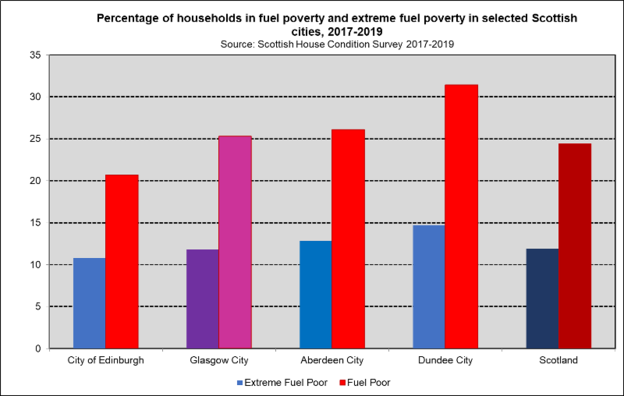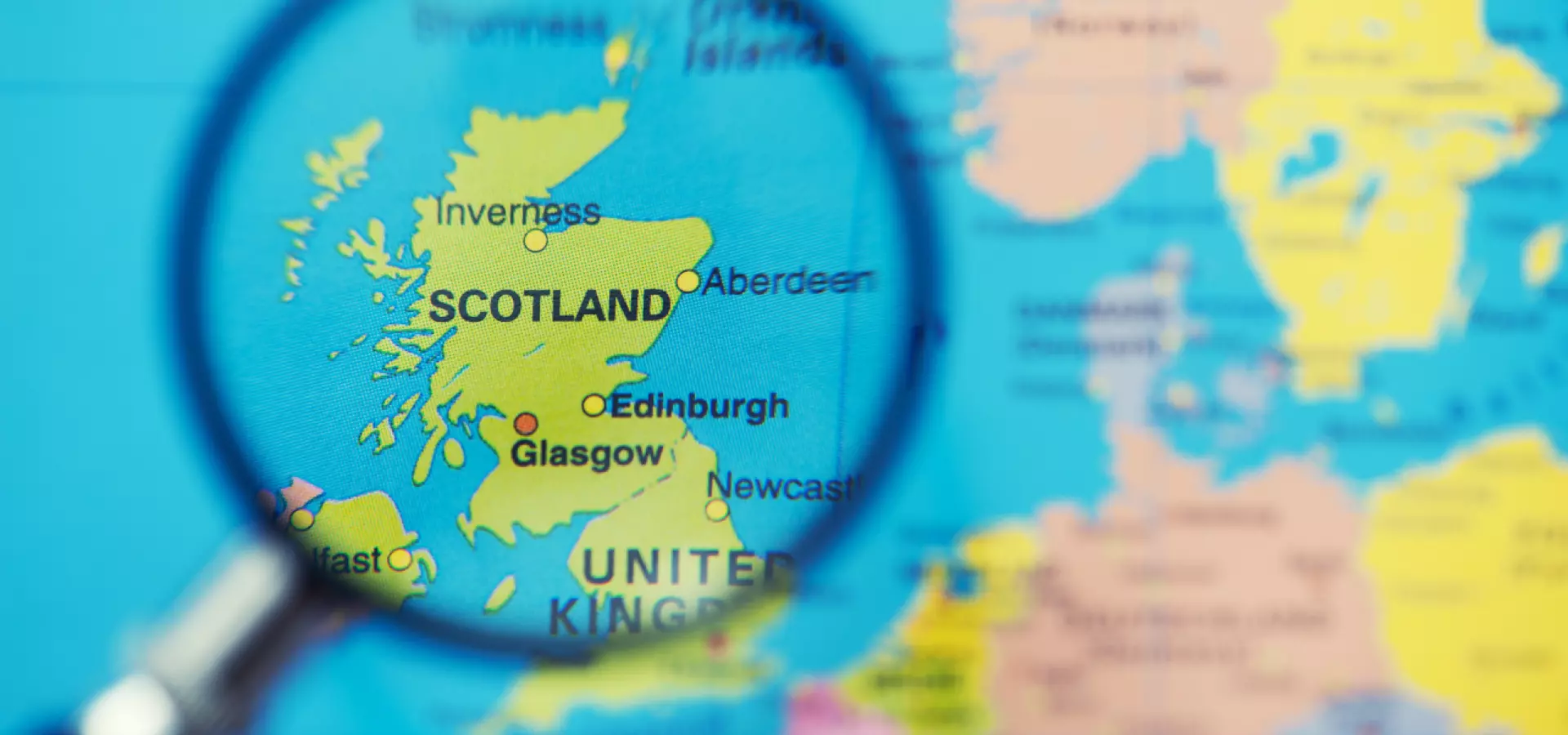Scottish cities
Fuel poverty in selected Scottish cities
Households are in fuel poverty when they need to spend at least 10% of their income on fuel. Approximately 25% of households in Glasgow were in fuel poverty during the period 2017-2019. This was slightly higher than the Scottish average (24%), and higher than in Edinburgh (21%), but lower than in Aberdeen (26%) or Dundee (31%).
Households that need to spend over 20% of their income on fuel are in extreme fuel poverty. Around 12% of households in Glasgow were in extreme fuel poverty in this period. This was similar to the Scottish average of 12%, higher than the Edinburgh figure of 11%, and lower than those of Aberdeen (13%) or Dundee (15%).
These figures are from 2017-2019, and there are not yet published figures which take into account the impacts of COVID-19 and the associated restrictions, or the rises in energy prices experienced since the end of 2021.
Notes
A household in fuel poverty is one that needs to spend more than 10% of its income (including Housing Benefit or Income Support for Mortgage Interest) on all household fuel use in order to maintain a satisfactory heating regime. Extreme fuel poverty is defined as a household having to spend more than 20% of its income on fuel. The likelihood of a household experiencing fuel poverty is influenced by income, fuel costs and energy efficiency of the dwelling.
These figures were sourced from the Scottish Households Condition Survey, and do not take into account bill rebates received under the warm homes discount scheme, or income received by additional adults other than the highest income householder and their partner. Therefore, these figures are likely to overstate the number of fuel poor households to an extent.
